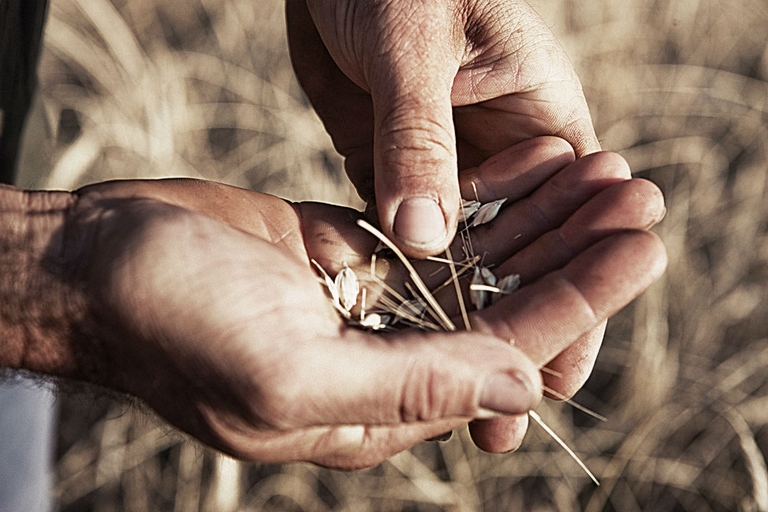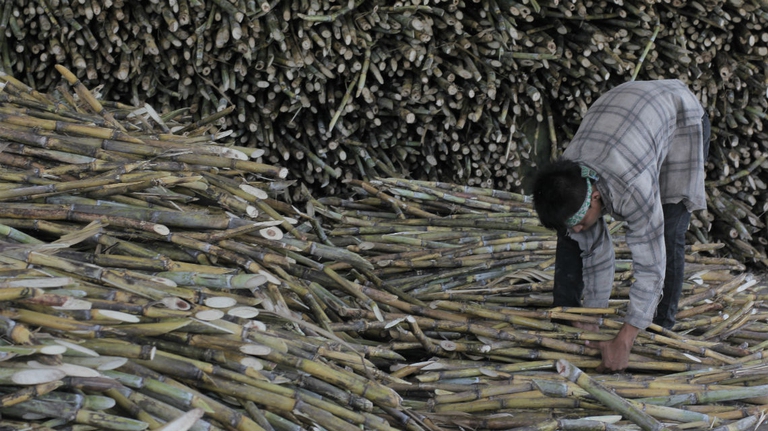
As per tradition after 12 years India held Mahakumbh, the world’s largest spiritual congregation that has been attracting pilgrims from across the globe.
L’agricoltura biologica in Perù, che rispetta la terra e chi la coltiva, ha permesso ai contadini peruviani di uscire dalla povertà e dal narcotraffico.
There’s a solution to end subsistence economies and agricultures, and it comes all the way from Peru, South America: cultivating the land with organic techniques added to fair trade. A historic conversion is being carried out in northern Peru, where farmers abandon coca cultivation favouring sugar cane.
A reconversion with social, environmental, and economic implications, as confirmed by Marisol Espinoza Cruz, vice president of Peru, at Expo Milano 2015: “Organic farming has completely changed the life of our people, particularly those living in the north. We’ve moved from subsistence agriculture to a system able to guarantee the quality of life and soil, leading to the creation of producers’ cooperatives”.
Organic farming has completely changed the life of our people
(Marisol Espinoza Cruz)
Thanks to agreements between cooperatives and companies like Alce Nero, we can now have products like organic and Fair Trade certified brown sugar on our table. It is a collaboration started many years ago that led the entire supply chain to be on the cultivation site, according to fair trade regulations. “We never expected that sugar cane would become a real competitor of coca,” said Hugo Valdes, executive director of the cooperative Sin Fronteras.
“We must recognise two different types of food: one aimed at feeding, and the other aimed at being healthy and contributing to develop lands, without impoverishing them,” said Lucio Cavazzoni, president at Alce Nero. “Quantity should not be our concern, because the most important thing is balance. Indeed, organic farming aims to find a balance with the environment and consumers”.
This is one of the numerous stories presented at Expo Milano 2015 that tell that feeding the planet whilst protecting biodiversity, developing organic agricultures, and recovering traditional crops and cultures is still possible. Thousands of farmers have improved their living conditions, and the key is the following: respecting the land whilst supporting a fair trade.
Siamo anche su WhatsApp. Segui il canale ufficiale LifeGate per restare aggiornata, aggiornato sulle ultime notizie e sulle nostre attività.
![]()
Quest'opera è distribuita con Licenza Creative Commons Attribuzione - Non commerciale - Non opere derivate 4.0 Internazionale.
As per tradition after 12 years India held Mahakumbh, the world’s largest spiritual congregation that has been attracting pilgrims from across the globe.
Workers in tea gardens of West Bengal, India, that produces Ctc tea for domestic consumption complain that they have been devoid of basic facilities while political parties make hollow promises during every elections which are never fulfilled.
India is in the middle of the elections, but sadly none of the politicians have uttered a word on man-animal conflict that has been devouring several lives every year.
Manipur, a state in north-east India, is still reeling under the tremors of violence that broke out last year devouring lives and paralyzing the economy.
The government of Tanzania is currently planning to evict more than 80.000 indigenous Maasai people from their ancenstral land
A new UNU-INWEH report on the global bottled water industry reveals the massive scale of this market and the lack of strict quality controls.
Isatou Ceesay founded a social enterprise that is helping to fight plastic pollution and empowering women and young people to gain economic independence.
In 2020, Mihela Hladin made a radical decision that many, in recent times, have probably considered. This is her story, with photos by Matt Audiffret.
The Brazilian government has started evicting illegal gold miners, responsible for the health emergency that has hit the Yanomami people.









